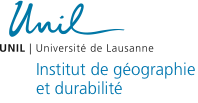Institute of Geography and Sustainability of the University of Lausanne
Research projects
Transformation of waste management practices and policies in South Asia during and after the COVID-19 pandemic
| Research fields |
Political ecologies |
| Keywords |
COVID-19 Gender relations South Asia Waste management |
| Funding | SNSF -- SPIRIT |
| Duration | January 2022 - December 2026 |
| Website | |
| Researchers |
Véron René (Principal Investigator) [web] [email] |
The COVID-19 pandemic has shown that municipal solid waste management is not only one of the most pressing environmental challenges in cities of the global south, but also crucial for public health, urban resilience and influencing gender relations. In South Asian countries, for instance, solid waste management has been declared an essential service during the pandemic. Waste management systems from the household level to final treatment and storage have been transformed during this crisis, often with negative impacts on (female) waste workers but sometimes also leasing to more sustainable waste practices at the household and community level. It is likely that Covid-19 will also have longer-term impact on waste policies, discourses and institutional arrangements with implications for (female) waste workers, including in the informal sector.
This research project will analyze how municipal solid waste management systems in Nepal and Sri Lanka coped with and adapted to the current pandemic. Using feminist urban political ecology, it will evaluate the impact of these changes on urban resilience, sustainability, decent work conditions and gender equality. The objective of the research is: (i) to describe the changed municipal solid waste management systems and discourses during the COVID-19 pandemic; (ii) to assess their gendered effects on formal and informal waste workers, their livelihoods, health and stigmatization; (iii) to investigate changed consumption and waste practices of households, with particular attention to gender relations; (iv) to appraise the longer-term impacts on governmental and municipal waste policies, management systems and logistic chains, and discourses with specific reference to gender responsiveness.
The project will be conducted by an international and interdisciplinary research team that can draw upon approaches from geography, political science, sociology, and gender studies. The core of this team has already worked together in a recent r4d project that aims to draw lessons from post-crisis, bottom-up governance initiatives related to solid waste management in South Asia. While that project took locally relevant crisis moments, such as an earthquake, a dumpsite collapse, and a garbage strike, as reference points, the COVID-19 pandemic has unwittingly provided a common crisis moment in the region that facilitates comparative analysis.

